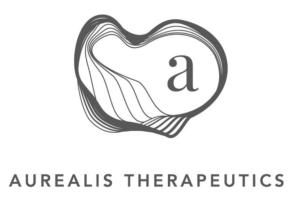Aurealis Therapeutics is a Swiss-Nordic Cell and Gene Therapy Platform Company.
Our multi-target cell and gene therapy platform, based on genetically modified safe lactic acid bacteria, addresses unmet medical needs: Chronic Wounds - Diabetic Foot Ulcers, Venous Ulcers, Pressure Ulcers - deadly Cancers - Ovarian Cancer, Peritoneal Carcinomatosis - Inflammation.
After successfully completing our Phase 1 clinical study in Diabetic Foot Ulcer (DFU) patients with our lead clinical product AUP-16, we are initiating our DFU Phase 2 study in Italy, Germany and Poland, first for DFU. Venous Ulcers and Pressure Ulcers will follow.
In Oncology, we are building on impressive pre-clinical data with Bacterial Vector lead candidate AUP-55, which shows increased survival in Ovarian Cancer and peritoneal carcinomatosis.
Our pipeline also includes Inflammation, at discovery stage.
Aurealis Therapeutics proprietary platform allows to create multi-therapy Bacterial Vectors, acting as millions of nanoscale bioreactors in the body, classified as Live Biopharmaceutical Products (LBP) / Advanced Therapy Medicinal Products (ATMP) / Gene Therapy Medicinal Products (GTMP). Aurealis current lead candidates are AUP-16 and AUP-55.
AUP-16 modulates the wound micro-environment and targets all key components of wound healing: inflammation, proliferation, angiogenesis, and remodelling. It consists of safe Lactococcus Cremoris that have been genetically engineered to produce and release 3 human therapeutic proteins in-situ: fibroblast growth factor 2 (FGF-2), interleukin 4 (IL-4) and colony stimulating factor 1 (CSF-1). AUP-16 bacterium allow to re-start and accelerate the healing of chronic wounds by 1) awakening the immune microenvironment, 2) driving macrophage conversion from pro-inflammatory M1 to anti-inflammatory and regenerative M2 phenotype, 3) granulation tissue formation by increasing fibroblast proliferation and promoting angiogenesis, and 4) supporting epithelialization. In Phase 1 clinical study, AUP-16 has allowed 83% of patients with non-healing diabetic wounds to reach complete healing. After 12 months follow-up, none of the healed ulcers have recurred.
AUP-55 consists of genetically engineered Lactococcus Cremoris for the treatment of ovarian cancer and peritoneal carcinomatosis. We have evaluated the efficacy of two AUP-55 leads producing human therapeutic proteins in situ; namely interleukin 18 (IL-18), granulocyte-macrophage colony stimulating factor (GM-CSF), interleukin-12 (IL-12) and interferon alpha (IFN-A). In pre-clinical studies, AUP-55 has been shown to induce tumour regression and improved survival in ovarian and intraperitoneal cancers.
Our multi-target cell and gene therapy platform, based on genetically modified safe lactic acid bacteria, addresses unmet medical needs: Chronic Wounds - Diabetic Foot Ulcers, Venous Ulcers, Pressure Ulcers - deadly Cancers - Ovarian Cancer, Peritoneal Carcinomatosis - Inflammation.
After successfully completing our Phase 1 clinical study in Diabetic Foot Ulcer (DFU) patients with our lead clinical product AUP-16, we are initiating our DFU Phase 2 study in Italy, Germany and Poland, first for DFU. Venous Ulcers and Pressure Ulcers will follow.
In Oncology, we are building on impressive pre-clinical data with Bacterial Vector lead candidate AUP-55, which shows increased survival in Ovarian Cancer and peritoneal carcinomatosis.
Our pipeline also includes Inflammation, at discovery stage.
Aurealis Therapeutics proprietary platform allows to create multi-therapy Bacterial Vectors, acting as millions of nanoscale bioreactors in the body, classified as Live Biopharmaceutical Products (LBP) / Advanced Therapy Medicinal Products (ATMP) / Gene Therapy Medicinal Products (GTMP). Aurealis current lead candidates are AUP-16 and AUP-55.
AUP-16 modulates the wound micro-environment and targets all key components of wound healing: inflammation, proliferation, angiogenesis, and remodelling. It consists of safe Lactococcus Cremoris that have been genetically engineered to produce and release 3 human therapeutic proteins in-situ: fibroblast growth factor 2 (FGF-2), interleukin 4 (IL-4) and colony stimulating factor 1 (CSF-1). AUP-16 bacterium allow to re-start and accelerate the healing of chronic wounds by 1) awakening the immune microenvironment, 2) driving macrophage conversion from pro-inflammatory M1 to anti-inflammatory and regenerative M2 phenotype, 3) granulation tissue formation by increasing fibroblast proliferation and promoting angiogenesis, and 4) supporting epithelialization. In Phase 1 clinical study, AUP-16 has allowed 83% of patients with non-healing diabetic wounds to reach complete healing. After 12 months follow-up, none of the healed ulcers have recurred.
AUP-55 consists of genetically engineered Lactococcus Cremoris for the treatment of ovarian cancer and peritoneal carcinomatosis. We have evaluated the efficacy of two AUP-55 leads producing human therapeutic proteins in situ; namely interleukin 18 (IL-18), granulocyte-macrophage colony stimulating factor (GM-CSF), interleukin-12 (IL-12) and interferon alpha (IFN-A). In pre-clinical studies, AUP-55 has been shown to induce tumour regression and improved survival in ovarian and intraperitoneal cancers.
Focus Areas

